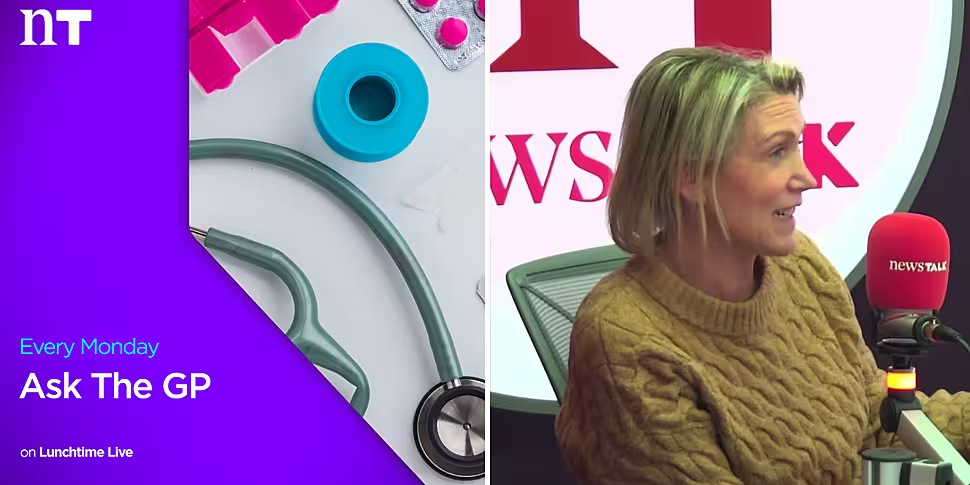It’s completely normal to still get your period in your 50s, as long as the period itself is regular, according to GP Dr Nina Byrnes.
Every week on Lunchtime Live, health experts answer your burning questions on Ask the GP.
One 51-year-old woman texted in to ask whether getting her period at her age is still normal.
“They’re heavy for the first three to four days,” she said.
Dr Byrnes said there is no “definite age for menopause”.
“The definition of menopause is one year since your last period,” she said. “While the average is around 50, 51, in some women it is later than that.
“Once [your periods] are regular and completely normal and don't feel like they've changed in any way you don't really have to do anything about it.
“I would say to anyone, if you've gone a full year without a period and then you have bleeding then that is abnormal and that needs to be checked out.”
ADHD medication
Another person asked Dr Byrne whether they should get ADHD medication for their 15-year-old who was recently diagnosed.
Dr Byrnes said teenagers with ADHD often are “the daydreamers away with the fairies” and struggle with higher rates of anxiety.
“We classically see the change when people go from junior to secondary or the senior cycle, it is difficult time for teenagers,” she said.
“It's really important that they get a proper assessment and diagnosis, and the diagnosis is very formalised.
“For certain checks have to be done before you start the medication and usually your psychiatrist will liaise with your GP about getting those done.”
The GP said untreated ADHD can result in “higher risk of substance use, self-harm and anxiety”.
GP advice on metabolism
Another person said they were recently diagnosed with subclinical hyperthyroidism and is wondering if a slower metabolism as a result of this could lead to weight gain.
Dr Byrnes said doctors do not see weight gain as a “major symptom” of thyroid disease.
“We also don’t see massive weight loss when they go on medication,” she said.
“With subclinical hyperthyroidism, there are two blood tests, and it means one of them is probably off, but the other is normal.
“Your circulating thyroid levels are normal, which means your body at the moment has enough thyroid hormone.”
The main symptoms of an underactive thyroid, according to the GP, is tiredness, changes in skin and hair, and heavier periods among women.
Listen back here:









